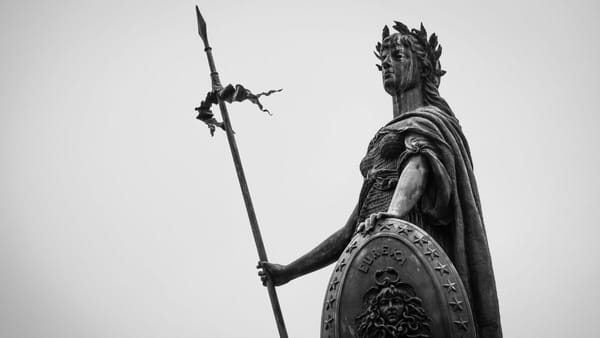Classic literature has a reputation for being difficult, but many of the world’s most loved novels were written to entertain, not intimidate. You don’t need an English degree to enjoy them—just curiosity and the right starting point. This list gathers classic books for beginners that are approachable, quick to read, and full of life. Whether you’re searching for easy classic books to read or wondering where to start with classic literature, these thirteen timeless stories prove that great writing is still perfectly readable today.
How to Choose Your First Reads (Without Getting Overwhelmed)
The secret to starting strong is choosing novels that move quickly and speak clearly. Go for short page counts, vivid scenes, and themes that still feel modern—love, ambition, courage, freedom. Forget about understanding every symbol or historical nuance; enjoyment comes first. Try mixing print and audio formats to build a steady rhythm. Read in short bursts instead of marathons. Once you’ve gained confidence, you can explore genres you naturally enjoy. The best first step into literature isn’t a test—it’s a spark.
The Great Gatsby by F. Scott Fitzgerald
Compact, lyrical, and endlessly quotable, The Great Gatsby is one of the easiest ways to see why classics endure. Fitzgerald’s sentences glide, the scenes shimmer, and the story moves fast. In fewer than 200 pages, he captures the ache of desire and the illusion of success through Nick Carraway’s view of Gatsby’s glittering world. As beginner classic novels go, it’s nearly perfect—short, sharp, and stylish. The green light at the end of the dock will haunt you long after you close the book — a quiet symbol of everything we keep reaching for.
To Kill a Mockingbird by Harper Lee
Told through the eyes of young Scout Finch, this warm and quietly powerful story blends humor with justice, childhood with conscience. The writing is friendly and direct, and the lessons on empathy and fairness arrive gently, through the rhythms of small-town life. It’s ideal for readers seeking classic literature for beginners that feels deeply human rather than historical. Every page reminds you that understanding begins with listening.
Animal Farm by George Orwell
This quick, vivid allegory is political without being dense. Animals overthrow their human owners only to create a new tyranny under the pigs. Orwell’s simple prose hides a sharp warning about how power distorts ideals. You can finish it in an afternoon, but it lingers for weeks. It’s one of the best classic books for beginners—easy to follow, immediately gripping, and perfect for sparking conversation about freedom and responsibility.
Pride and Prejudice by Jane Austen
Witty, romantic, and remarkably modern in its tone, Pride and Prejudice shows that great writing doesn’t have to be slow. Elizabeth Bennet’s wit and Mr. Darcy’s restraint collide in ways that still feel fresh. The novel moves quickly through social dances and misunderstandings, but the dialogue and irony give it real bite. It’s not only one of the must-read classic books but also a charming doorway into the clever emotional world of romance classics.
The Picture of Dorian Gray by Oscar Wilde
Oscar Wilde turns a dark premise—eternal youth at the cost of one’s soul—into something glittering and provocative. The sentences sparkle with wit, the tension builds steadily, and the moral decay is impossible to look away from. Beneath the glamour lies a haunting study of vanity and consequence. It’s short, memorable, and beautifully written—a natural introduction to the elegance and mystery found in gothic classics.
The Call of the Wild by Jack London
Jack London’s prose is stripped to essentials: snow, hunger, instinct. Buck’s transformation from domestic comfort to raw survival in the Yukon captures something primal and universal. The pace is quick, the chapters lean, and the language feels alive. It’s one of the best easy classic books to read if you want action and heart together. Beneath the adventure beats a quiet reflection on strength, loyalty, and freedom.
Of Mice and Men by John Steinbeck
Few novels achieve so much in so few pages. George and Lennie’s dream of a small farm burns bright against the backdrop of hard times. Steinbeck’s clear, rhythmic dialogue and plain description make this story accessible while carrying immense emotional weight. It’s the perfect example of how short classics can leave a lasting impact. You’ll read it in one sitting and remember it for years.
The Little Prince by Antoine de Saint-Exupéry
At first glance, it’s a children’s tale; in truth, it’s a book for anyone still learning to see clearly. The language is light, the imagery unforgettable: a rose, a fox, a tiny planet, and a boy who understands what adults forget. Its short chapters and lyrical tone make it perfect for newcomers. As classic literature for beginners, it reminds us that wisdom often hides in simplicity.
Fahrenheit 451 by Ray Bradbury
Firemen burn books in a world where curiosity is dangerous. Ray Bradbury’s story burns just as hot as its subject—fast, visual, and full of urgency. The sentences crackle, the pace never slows, and the questions it raises about distraction and control are timeless. It’s one of the most approachable dystopian classics, combining excitement with substance. The result: a novel that reads like a thriller but stays in your mind like a warning.
Jane Eyre by Charlotte Brontë
Jane’s voice is so direct that even new readers feel instantly connected. From orphaned childhood to hard-won independence, her journey is full of mystery, love, and moral strength. The gothic setting—stormy skies, locked doors, whispered secrets—adds momentum rather than weight. For anyone starting out, it’s proof that classic fiction can be both suspenseful and empowering.
The Old Man and the Sea by Ernest Hemingway
A fisherman’s long battle with a marlin becomes a meditation on endurance and pride. Hemingway’s sentences are stripped to their core—clean, rhythmic, unadorned. It’s an ideal pick among classic books for beginners because the story is simple, yet the meaning grows with each reread. A quiet triumph of willpower and dignity, it shows how restraint can hold remarkable depth.
The Metamorphosis by Franz Kafka
One morning, Gregor Samsa wakes up as an insect—and life goes on around him. Kafka’s detached tone turns absurdity into revelation. The novella is brief, the sentences are simple, and the emotional pull is immediate. Beneath the bizarre surface lies a universal question: what happens when the world stops seeing you as human? It’s an unforgettable way to experience modern storytelling’s strange power — one that lingers long after the last page.
The Stranger by Albert Camus
Camus writes with precision so spare it feels like sunlight on glass. Meursault’s indifference to his own life and the events that follow creates a story both unsettling and hypnotic. Short, clear, and full of quiet tension, it’s one of the finest classic novellas to begin with. It introduces big existential ideas without demanding any background reading—simple in language, complex in thought.
Finding Your Next Step
Once one of these books connects with you, the hardest part—starting—is behind you. Let curiosity lead the way. Follow the writers or ideas that resonated most, or explore new eras and perspectives that catch your attention. Reading becomes easier the moment you stop chasing prestige and start chasing pleasure. Every finished story builds momentum, and every page teaches you something about rhythm, language, and yourself. The world of classic literature isn’t a mountain to climb—it’s a landscape to explore, one vivid chapter at a time.
Thanks for reading. If this list helped you discover something new — or rediscover something old — you’re welcome to keep exploring:




















